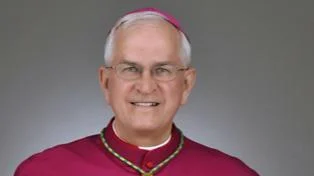
Reverend Joseph E. Kurtz, D.D. Bishop | Archdiocese of Louisville
The Catholic Church is being urged to focus on ensuring that the sacrament of confirmation does not become a farewell for young people. Pope Francis emphasized this point during his weekly general audience on October 30, suggesting that many youths receive confirmation and then do not return to church until they seek marriage.
"The problem is how to ensure that the sacrament of confirmation is not reduced, in practice, to 'last rites,' that is the sacrament of 'departure' from the church, but is rather the sacrament of the beginning of an active participation in its life," Pope Francis stated.
He continued his series of talks about the Holy Spirit's role in church life by urging parishes to engage laypeople who have experienced a personal encounter with Christ and have felt the Spirit's presence. These individuals should lead confirmation preparation classes, he suggested.
Pope Francis called on all Catholics to reignite the "flame" of the Holy Spirit received at confirmation, akin to what disciples experienced at Pentecost. He pointed out that the upcoming Holy Year 2025, starting December 24, presents an opportunity for this renewal.
"Here is a good goal for the Jubilee Year: To remove the ashes of habit and disengagement, to become, like the torchbearers at the Olympics, bearers of the flame of the Spirit," he said. "May the Spirit help us to take a few steps in this direction!"
Quoting from Italian bishops' catechism for adults, Pope Francis explained that "confirmation is for all the faithful what Pentecost was for the entire church." It serves to strengthen baptismal incorporation into Christ and consecration to prophetic missions.
Addressing Arab speakers directly, he noted that "through the sacrament of confirmation, the Holy Spirit consecrates and strengthens us, making us active participants in the church’s mission."
During his audience with ethnic Croatian youth recently confirmed in Germany, Pope Francis expressed hope that they would be "joyful witnesses for Christ."
The pope also urged prayers for peace in Ukraine, Palestine, Israel, and Myanmar after learning about 150 people being killed. Although he did not specify where some assumed it referred to an attack in Burkina Faso or Israeli actions in Gaza.
"What do children, families have to do with war?" he asked. "They are the first victims. Let us pray for peace."


 Alerts Sign-up
Alerts Sign-up